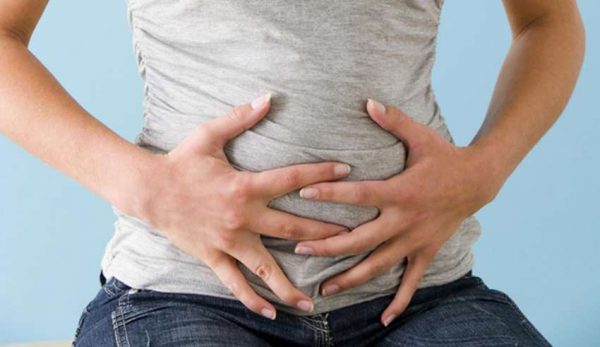
Dyspepsia Definition
Dyspepsia is a complex disorder with several distinct pathophysiologic mechanisms that are still poorly understood. Dyspepsia, also known as indigestion, is a term that describes persistent or recurrent pain or discomfort in the upper abdomen. Dyspepsia is not a single disease, but rather a complex of symptoms that often overlap with other disease entities.
Indigestion may be:
-
occasional—happening once in a while
-
chronic—happening regularly for a few weeks or months
-
functional—having chronic symptoms without a specific cause
In general, Dyspepsia can be divided into 2 main categories: organic and functional dyspepsia (FD). Organic causes of dyspepsia are peptic ulcer, gastroesophageal reflux disease, gastric or esophageal cancer, pancreatic or biliary disorders, intolerance to food or drugs, and other infectious or systemic diseases. Pathophysiological mechanisms underlying FD are delayed gastric emptying, impaired gastric accommodation to a meal, hypersensitivity to gastric distension, altered duodenal sensitivity to lipids or acids, altered antroduodenojenunal motility and gastric electrical rhythm, unsuppressed postprandial phasic contractility in the proximal stomach, and autonomic central nervous system dysregulation.
Pathogenic factors in FD are genetic predisposition, infection from Helicobacter pylori or other organisms, inflammation, and psychosocial factors.
Prevalence of Dyspepsia
Indigestion is a common condition, affecting about 1 in 4 people in the United States each year. Of those people with indigestion who see a doctor, almost 3 in 4 are diagnosed with functional dyspepsia.
Symptoms of indigestion
The symptoms of indigestion can include:
-
Burning in the stomach or upper abdomen (heartburn)
-
Abdominal pain
-
Bloating
-
Belching and gas
-
Nausea and vomiting
-
Acidic taste
-
Growling stomach
-
Burping
These symptoms may increase in times of stress.
Causes of indigestion
-
Eating some foods that are hard to process
-
Eating too late in the day
-
Getting too much caffeine
-
Taking certain medicine
-
Drinking alcohol
-
Problems in GI tract such as gastroesophageal reflux disease (GERD), ulcers, Irritable bowel syndrome, Gastroparesis, Gastritis
Dyspepsia Diagnosis
The initial evaluation of a patient with dyspepsia begins with a thorough history and physical examination.
if indigestion began suddenly with experiencing severe symptoms, doctor may recommend:
-
Laboratory tests to check for anemia or metabolic disorders
-
Breath and stool tests to check for Helicobacter pylori
-
Endoscopy to check for abnormalities in the upper digestive tract
-
X-ray or CT scan to check for intestinal obstruction
If initial testing fails to provide a cause, it can be functional dyspepsia
Dyspepsia Treatment
Treatment depends on the cause and may include:
over-the-counter and prescription medicines
changing what you eat and drink
psychological therapies
Lifestyle changes may help improve dyspepsia. doctor may recommend:
-
Avoiding foods that trigger indigestion
-
Eating five or six small meals a day instead of three large meals
-
Reducing or eliminating the use of alcohol and caffeine
-
Avoiding certain pain relievers, such as aspirin, ibuprofen and naproxen sodium
-
Finding alternatives for medications that trigger indigestion
-
Controlling stress and anxiety
Medications can be helpful, if indigestion persists.
The first choice is antacids and other medications include:
-
Proton pump inhibitors (PPIs)
-
H-2-receptor antagonists
-
Prokinetics
-
Antibiotics
-
Antidepressants or anti-anxiety medications
Diet Therapy in Dyspepsia
A dyspepsia diet is designed to avoid foods that are stomach irritants in patients. Following a dyspepsia diet may reduce the risk of developing an ulcer in the first place and speed recovery. Some foods may trigger dyspepsia that include:
Fatty, alcohol, spicy food, caffeine, carbonated beverages, chocolate, citrus fruits and juices, tomato products and peppermint. These foods can increase stomach acid.
Foods that contain flavonoids such as apple and celery can inhibit the growth of H-Pylori.
high fat-meal can induce greater nausea, pain and fullness both respect to a low-calorie meal and an equicaloric meal, high in carbohydrates for the same volume.
Some recommendation
-
Eat small regular meals
-
Chewing food thoroughly
-
Eating in a calm and relaxed environment
-
Chewing and swallowing foods slowly
-
Avoid taking in excessive air by avoiding smoking, eating quickly, chewing gum, drinking through a straw and drinking carbonated beverages.
-
Avoid mixing hot and cold foods
-
Avoid overeating
-
Exercise regularly




